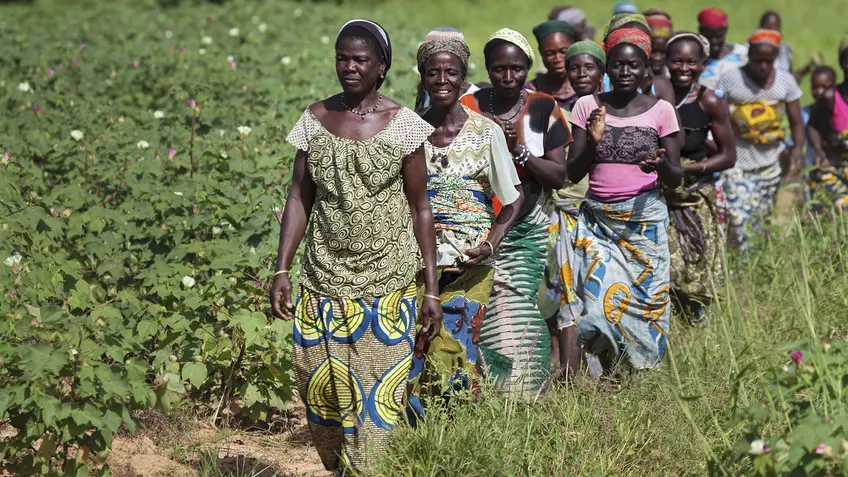Burkina Faso Engages in Collaborative Efforts to Mainstream Climate and Gender Across Sectoral Plans
“An inclusive and participatory approach as a key to accelerate NDC implementation."
- Mr. Batio Bassiere, Minister of Environment, Green Economy and Climate Change
Since becoming an NDC Partnership member in 2018, the Government of Burkina Faso has been working with multiple partners to mainstream climate action into its NDC and gender into its NDC plan as well as across wider national development efforts.
MAINSTREAMING CLIMATE ACTION
Burkina Faso mobilizes ministries and partner organizations to mainstream climate action and gender at three different levels.
First, in NDC implementation, Germany (through GIZ) is developing a Climate Investment Plan to accompany Burkina Faso’s Partnership Plan (see How the Partnership Works section). Building on existing plans, such as the Climate Smart Agriculture Investment Plan developed by the World Bank and the Green Climate Fund Program, its purpose will be identifying and prioritizing NDC implementation projects.
Second, in Burkina Faso’s NDC revision, the Global Green Growth Institute (GGGI) will support the development of sector-specific action plans including integrating gender aspects. Climate Analytics and GGGI will conduct sectoral cost-benefit analyses identifying the most suitable mitigation and adaptation actions. Burkina Faso’s CBIT plans to develop country-specific emissions factors in the AFOLU and Waste sectors, sustaining and facilitating relevant and reliable NDC base line projections to establish realistic and attainable future targets.
Third, direct support to the Ministry of Economy and Finance will be provided by a Germany-financed NDC Partnership economic advisor, who will work on green COVID-19 recovery and will support integrating NDCs into the 2021-2025 National Plan.
This collaborative effort to mainstream climate action allows Burkina Faso to set sectoral targets for mitigation and adaptation in alignment with wider plans and initiatives, including SDGs.
BUILDING GENDER-RESPONSIVE CLIMATE ACTION
Burkina Faso—with GGGI, UNDP NGOs, and CSOs support—is mainstreaming gender by integrating gender aspects in NDC revisions.
The aim is to develop sector-specific action plans after assessing the inclusion of gender-sensitive aspects and the development of gender-specific indicators within the NDC priority sectors (energy, agriculture, transport, forestry, livestock, water, health, and waste).
GGGI and the UNDP are conducting a field consultation with key stakeholders, including 11 ministries and non-government actors (e.g., the private sector, journalists, universities, and civil society organizations). GGGI is organizing three workshops to inform and train key sectoral actors around gender mainstreaming. GGGI will also provide technical validations of produced materials that enable relevant gender responses.
The activities include:
- Developing scoping and Rapid Sectoral Analysis to collect available data and analyze ministries’ structure around gender.
- Studying gender consideration in sectoral policies and the production of tools for this purpose.
- Holding two training workshops with stakeholders and developing gender-responsive sector action plans, based on the assessment report. These workshops will gather information; serve as a basis for developing gender-responsive, sector-specific action plans; inform NDC policy (including implementation/roadmaps and project planning); and train key gender focal points from ministries to strengthen capacity on gender, climate change, and NDCs.
- Mainstreaming gender in NDC sectoral plans on nine priority sectors, with gender focal points receiving tools and gender markers to support the development/evaluation of NDC actions.
Members supporting Burkina Faso: Climate Analytics; FAO; GIZ; GGGI; SNV; UNDP; and the World Bank.
This is a PiA 2020 story: Browse the multimedia version or PDF version.
